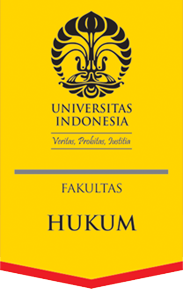DOI
10.21143/jhp.vol49.no1.1912
Abstract
The presence of application-based taxis such as Grabcar and Gocar is a challenge for conventional taxis. Its existence can be reduced to conventional taxi company turnover. On March 22, 2016 thousands of conventional taxi drivers held a demonstration against the existence of online taxis, because online taxis were declared in violation of the Traffic Law and consequently the streets in Jakarta were chaotic. The existence of online taxis cannot be avoided any more, due to technological developments. Online taxis provide benefits and convenience for passengers in ordering and the rates are cheaper than conventional taxi rates. Anyone who has a cellphone and downloads the application, can order the online taxi and pick him up at the place where the passenger booked it. Therefore, the Government through the Ministry of Transportation issued Ministerial Regulation No. 32/2016 which recognizes the existence of online taxis in Indonesia and this Ministerial Regulation is revised through Ministerial Regulation No. 26/2017 and revised again to become Ministerial Regulation No. 108/2017.
Bahasa Abstract
Hadirnya taksi berbasis aplikasi seperti Grabcar dan Gocar menjadi suatu tantangan bagi taksi konvensional. Keberadaannya ditengarahi dapat mengurangi omset perusahaan taksi konvensional. Pada tanggal 22 Maret 2016 ribuan sopir taksi konvensional mengadakan demonstrasi menentang keberadaaan taksi online tersebut, karena taksi online dinyatakan melanggar Undang-undang Lalu Lintas dan akibatnya jalan-jalan di Jakarta chaos. Keberadaan taksi online tidak dapat dihindari, karena perkembangan teknologi. Taksi online memberikan manfaat dan kemudahan bagi penumpang dalam mengordernya dan tarifnya lebih murah daripada tarif taksi konvensional. Siapapun yang mempunyai handphone dan mendownload applikasinya, maka dia dapat memesan taksi online tersebut dan menjemputnya ditempat dimana penumpang memesannya. Oleh karena itu, Pemerintah melalui Kementerian Perhubungan mengeluarkan Peraturan Menteri No. 32/2016 yang mengakui keberadaan taksi online di Indonesia dan yang telah direvisi menjadi Peraturan Menteri No. 26/2017 dan direvisi lagi menjadi Peraturan Menteri No. 108/2017.
References
Bower, J. L., and C. M. Christensen. Disruptive Technologies: Catching the Wave. Harvard Business Review 73, No. 1 January–February 1995 Edelman & Geradin, Efficiencies and Regulatory Shortcuts: How Should We Regulate Companies Like Airbnb and Uber? (Forthcoming, Stanford Technology Law Review, 24 November 2015. Federico Lubian, How can Law understand and communicate with the Sharing Economy and the TechnologicalApps world? The case of Uber, Fribourg: 2015 Gesley, Legal Challenges for Uber in the European Union and in Germany, Germany, 2016 in https://blogs.loc.gov/law/2016/03/legal-challenges-foruber- in-the-european-union-and-in-germany/, accessed on 01.03.2016 Hon. Orrin G. Hatch, Antitrust in the Digital Age in Competition, Innovation and the Microsft Monopoly: Antitrust in Digital Marketplace, edited by Jeffrey A. Eisenach and Thomas M. Lanrd, Boston, Kluwer Academic Publishers, 1998 House of Commons Business, Innovation and Skills Committee. The Digital Economy. Second Report of Session 2016-17. Published on 18 July 2016 by the House of Commons ICN, Defining Hard Core Cartel Conduct Effective Institutions Effective Penalties, Bonn, 2005 Khemani and Shapiro, OECD Glossary of Statistical Term (Paris, 2002) Knickrehm, Mark, Berthon, Bruno and Daugherty, Paul, Digital disruption: The growth multiplier. Optimizing digital investments to realize higher productivity and growth, Accenture, 2016 Lee, Cassey, the Objective of Competition Law, ERIA Discussion Paper Series, ERIA-DP-2015-54 Nowag, Julian, Uber Between Labour and Competition Law, Vol. 3 LSEU, 2016 OECD. Hearings. The Digital Economy 2012 Schneider, Creative Destruction and Sharing Economy: Uber as Disruptive Innovation, EE Publishing, London: 2017 Competition Policy on Online Taxi, Udin Silalahi 109 Sørensen, Marie Jull, Private Law Perspectives on Platform Services: Uber – a business model in search of a new contractual legal frame? EuCML 2016, 15, Beck-online Legislation and Court Decision Government Regulation No. 74 of 2014 on Transportation Law No. 5 of 1999 on Prohibition of Monopolistic Practices and Unfair Business Competition Law No. 22 of 2009 on Transportation on Road Ministerial Regulation No. 32 of 2016 on Non-route Passenger Transportation Services which is replaced by Ministerial Regulation No. 26 of 2017 and replaced again by Minisiterial Regulation No. 108 of 2018 The case of Uber vs Berwick CGC-15-546378 The Commission Regulation No. 4 of 2010 concerning Cartel Guideline Internet http://tekno.kompas.com/read/2014/06/07/1159117/Aplikasi.Pesan.Taksi.Grab Taxi.Masuk.Indonesia accessed on 17 February 2017 http://www.cnnindonesia.com/teknologi/20150707192338-185-65040/takcuma- berkantor-uber-akan-bikin-pt-di-indonesia/ accessed on 17 February 2017 Sopir Amgkot di Tangerang Demo Tolak Online Angkot, https://news.detik.com/berita/d-3441158/sopir-angkot-di-tangerangdemo- tolak-angkutan-online accessed on 11 March 2017 Vandalism taints massive strike of public minivan drivers in Bandung, http://www.thejakartapost.com/news/2017/03/09/vandalism-taintsmassive- strike-of-public-minivan-drivers-in-bandung-1489064791.html accessed on 11 March 2017 Demo Angkutan Online di Malarang Ricuh, http://news.okezone.com/read/2017/03/08/519/1637181/demo-angkutanonline- di-malang-ricuh accessed on 11 March 2017
Recommended Citation
Silalahi, Udin
(2019)
"COMPETITION POLICY ON ONLINE TAXI IN INDONESIA,"
Jurnal Hukum & Pembangunan: Vol. 49:
No.
1, Article 5.
DOI: 10.21143/jhp.vol49.no1.1912
Available at:
https://scholarhub.ui.ac.id/jhp/vol49/iss1/5
Included in
Administrative Law Commons, Business Organizations Law Commons, Transportation Law Commons

